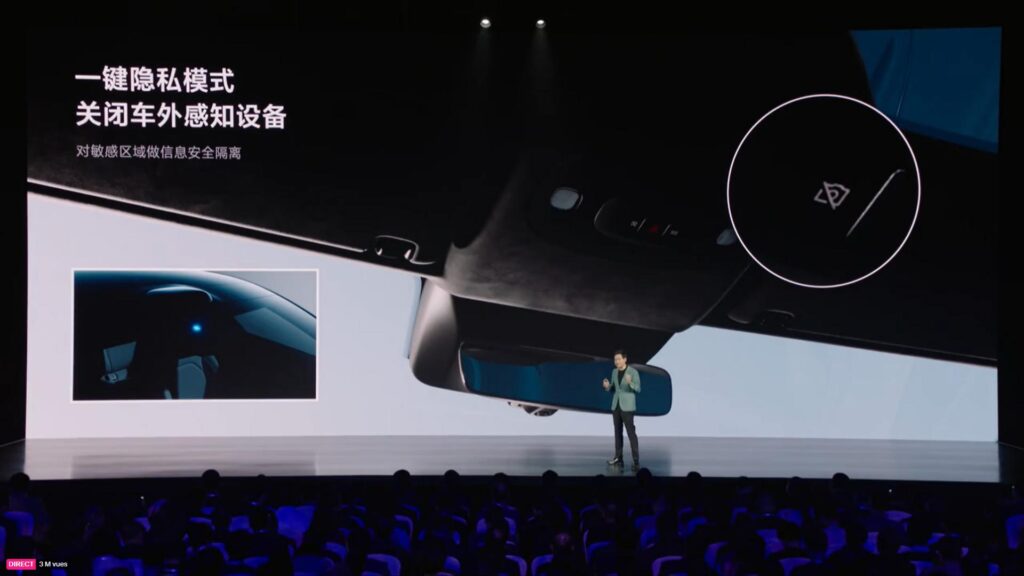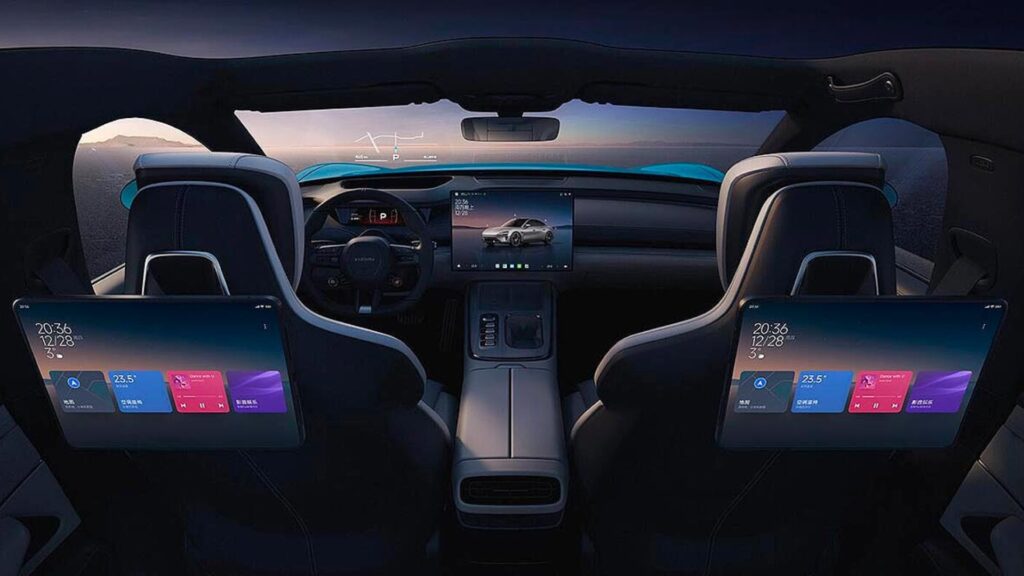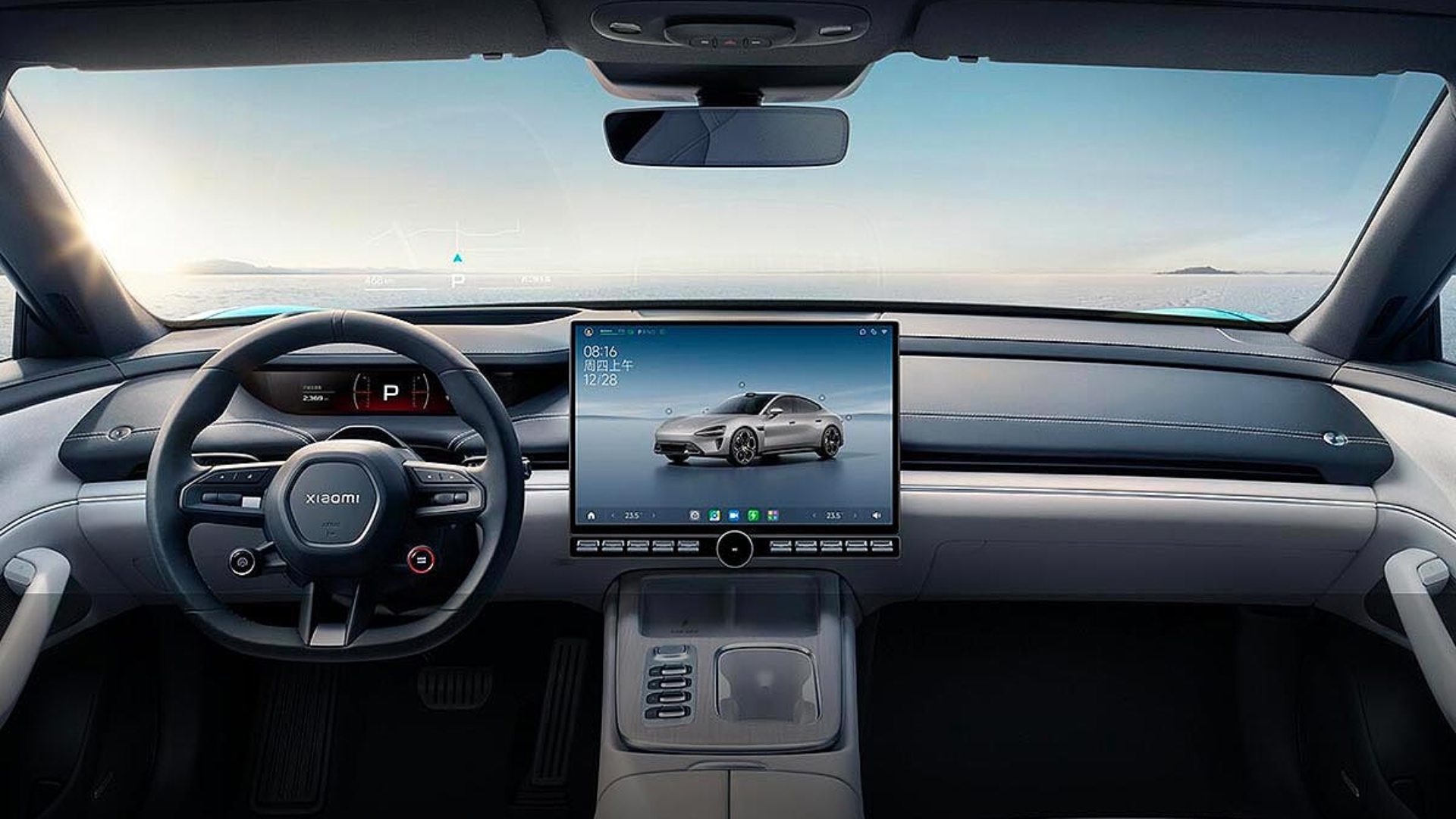The officialization of the Xiaomi SU7 surprises on several levels. For a first model, the Chinese brand seems to make a very successful copy. One of the many features presented during the conference particularly caught our attention: the privacy button.
The increasingly massive presence of cameras, lidars and other sensors on new cars is not without consequences on the confidentiality of certain sites. This is a subject which has notably taken on a surprising political dimension with the Tesla models. These found themselves banned in certain places because of the remotely controllable video stream of sentinel mode. To avoid finding yourself in a similar situation, Xiaomi has developed an innovative feature: being able to deactivate all the tools scanning the surroundings of the car with a physical button.
Advertisement
It was the boss of Xiaomi, Lei Jun, who made a quick presentation during the March 28 launch of his SU7 electric sedan. What appears to be a gadget functionality at first glance would nevertheless have every interest in being developed by all car manufacturers who equip their cars with lidar and multiple exterior and interior cameras.
A real plus for confidentiality
Xiaomi's main competitors are those who could find particular benefit in this privacy feature. There is no doubt that many manufacturers will buy a Xiaomi SU7 to study it from every angle and take it apart. It is a very widespread practice to observe the progress of the competition and take inspiration from it to evolve. Except that with connected cars equipped with cameras, several automobile groups have been caught studying competing cars, the scene being captured by the car itself in the competitors' industrial sites.

With the Xiaomi SU7, this problem will be solved. All it takes is a press of a physical button located on the ceiling light for the car to cut off all the capture equipment (cameras, lidars and other sensors) allowing it to evaluate its environment. The car of course informs the driver that the functions are cut off as long as he does not deactivate the privacy mode himself. The main disadvantage in these cases is that the car can no longer use certain driving aids: parking aid function, approaching vehicle detection, etc. It's a throwback to an old-fashioned car.
The advantage of this functionality is that it ensures that no data from a sensitive site or their home will be captured and used without their knowledge. Although normally no car is supposed to work otherwise, the Tesla camera business has aroused some fears of espionage. The United States is also playing heavily on the fear that Chinese electric cars could send data to the Chinese government.
Advertisement
Manufacturers from tech could bring real innovations
Technologically speaking, the Xiaomi car is heavy. Foxconn, BYD, Sony and now Xiaomi could well advance the electric car even faster than other brands. How they respond to customer demand and not use outdated technologies in their model could well make the difference.


Traditional manufacturers still remain stuck on profitable and proven technologies, while new players do not hesitate to look for much more recent technologies to provide their model with much more advanced functionalities.
Xiaomi also proves this in its way of integrating Apple users, in addition to Android users, into the daily use of the car. Our Frandroid colleagues have detailed what this changes. That's light years ahead of what automakers are capable of delivering in most current models.
Xiaomi has the ability to imagine complete ecosystems, where the car is one of the elements that must be able to interact with other connected objects. A vision of things very far from other brands, including Tesla with its operating system without Android Auto or Apple CarPlay.
